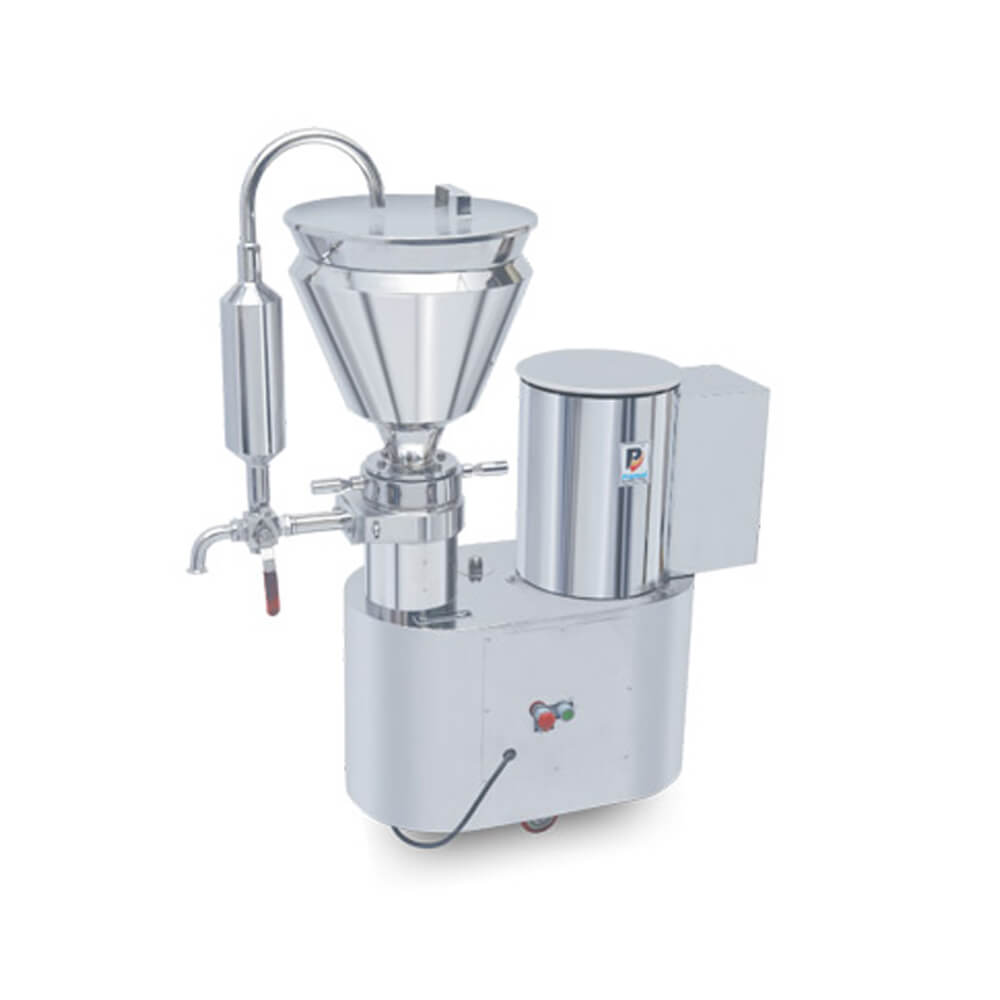Colloid Mill can produce superfine grinding results while also emulsifying, homogenising, and dispersing. The system produces a large volume of production while taking up very little room. As a result, it is one of the industry’s best computers. It’s also a breeze to clean the unit. It can be easily cleaned by flushing water or using appropriate solvents. The unit is equipped with stainless steel contact parts that are extremely durable. In addition, the different operating components are simple to disassemble and reassemble.
By dispersing materials in a liquid, the machinery breaks down the materials. Shearing occurs in a small space between a stationary cone (the stator) and a rapidly spinning cone (the rotor) (the rotor). Toughened steel or corundum are used to make the rotor and stator, which reduces wear. A colloid mill’s rotor can vary from machine to machine, but the operating principle remains the same. Unique features are implemented by each manufacturer, resulting in variations in operating performance.
Features & Benefits
- The model is fully leak-proof.
- Plain, water-jacketed, and flame resistant options are all available.
- Even during service, a special design allows for adjustment of the grinding gap by an exterior screw through the handle.
- Grinding, homogenising, emulsifying, dispersing, mixing, and extracting are all possible with this device.
- Homogenizing and milling machine with a particle size range of 5 to 10 microns. The extended bearing housing was designed to allow fine adjustments of bearing clearances or backlash to prevent metal-to-metal contact between the rotor and stator.
- This one-of-a-kind design ensures smooth and consistent performance across the board, as well as rotor and stator longevity.
- Colloid mill machines are also used as herbal extractors, in food manufacturing, and pharmaceutical laboratories.
Working Application
- It is primarily used in the pharmaceutical industry for colloidal dispersions, suspensions, emulsions, and ointments preparation.
- Food and beverage, pharmaceuticals, and chemicals are only a few of the sectors that use colloidal mills.
- Colloidal mills are suitable for tablet batching systems on a small, medium, or large scale. The most effective method for dispersion and homogenization of raw materials is the colloid mill.
Pharmaceutical Uses of Colloid Mill
- The most common applications of a colloid mill are the comminution of solids and the preparation of suspensions, especially those containing solids that are not wetted by the dispersion medium.
- Colloidal dispersions, suspensions, emulsions, and ointments are all made from it.
- Ointment, cream, gels, and high viscous fluids are all ground, dispersed, and homogenised in one process using a colloid mill.
The Promas colloid mill is a strong machine in its own right, designed to handle a wide range of applications in a smooth and hassle-free manner. In cases where it is deemed appropriate, it can also be used to manage continuous and recirculation methods of operation. Specially designed discharge sponges are also available for use with high viscous materials. The colloid mill machine itself requires little maintenance and can be counted on to provide optimal results for several years. As a result, it’s an ideal product for such needs.





